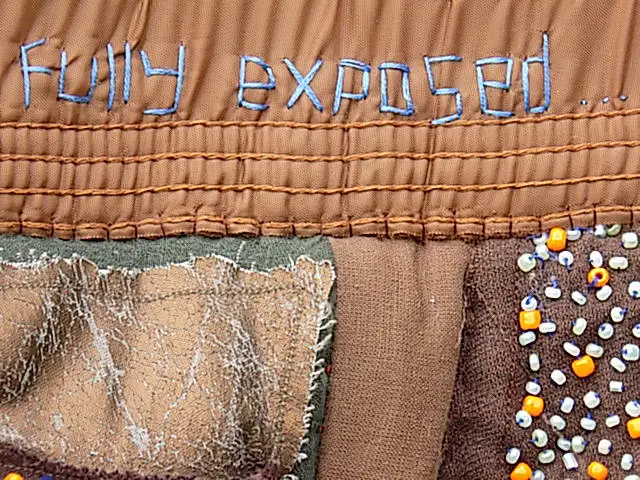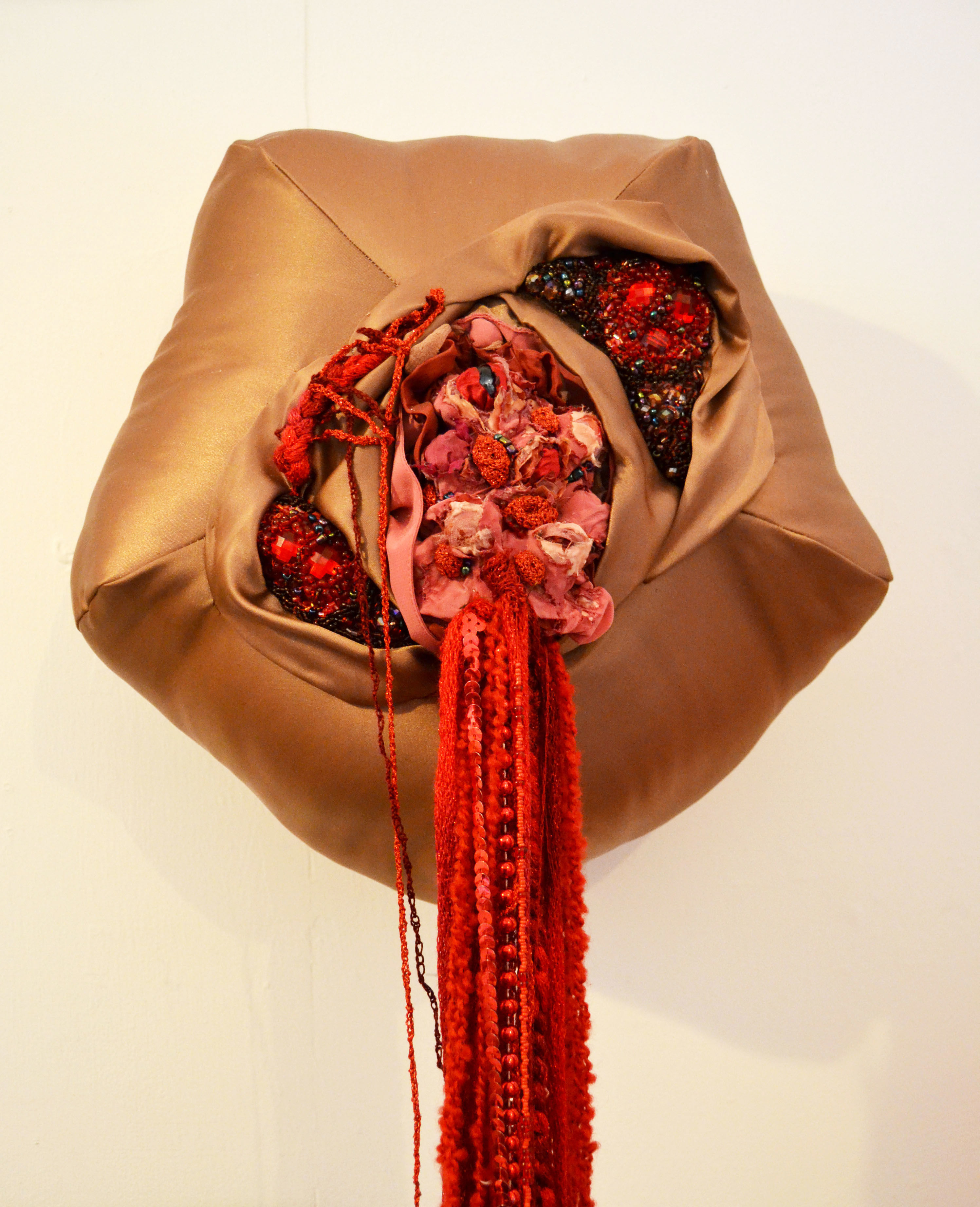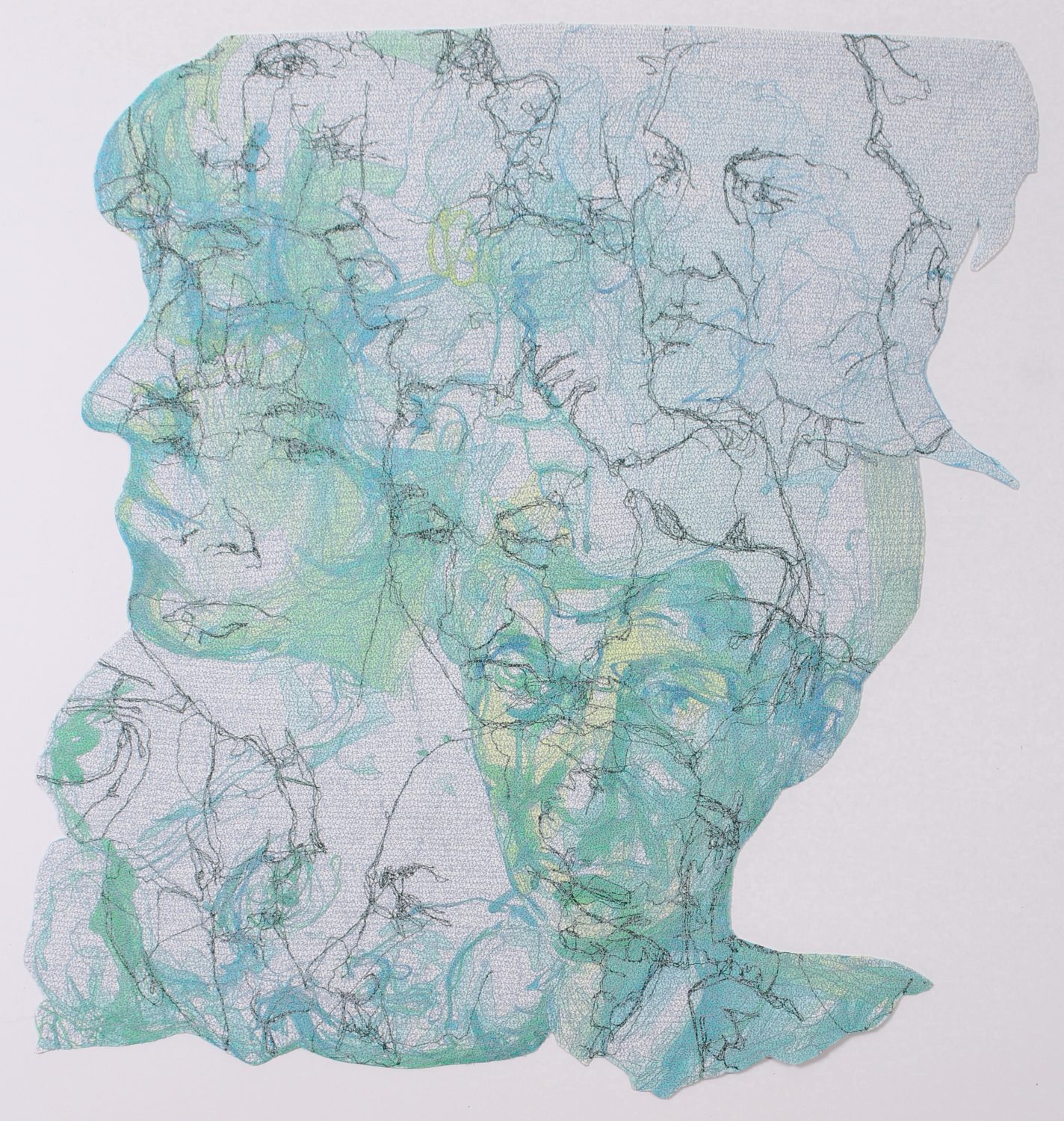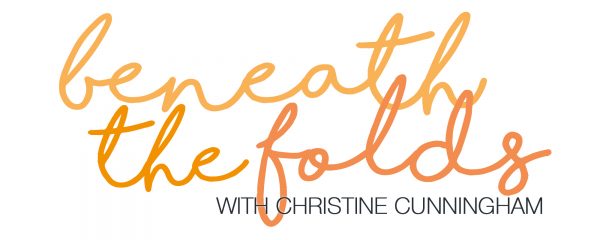
AUTUMN is my favourite of the seasons, rich in colour, pattern, texture and form. I am instantly transported back to childhood, running through a thick carpet of fallen leaves, collecting concors and berries to display at home, enjoying the company of my robin as I tidy the garden donning wellingtons and cosy knits. Let us explore how to create an ABSTRACT textile taking inspiration from the abundance of the season.
ABSTRACT AUTUMN COLOUR : Layering fabrics using techniques of applique, quilting and patchwork is effective in creating a rich palette of greens, warm browns, vibrant reds, orange and gold as a backdrop to detailed embellishments of beads, sequins and metallic shapes. Blues echo variations between sky and pale shade.Threads add an additional layering, whether by machine or hand stitched.
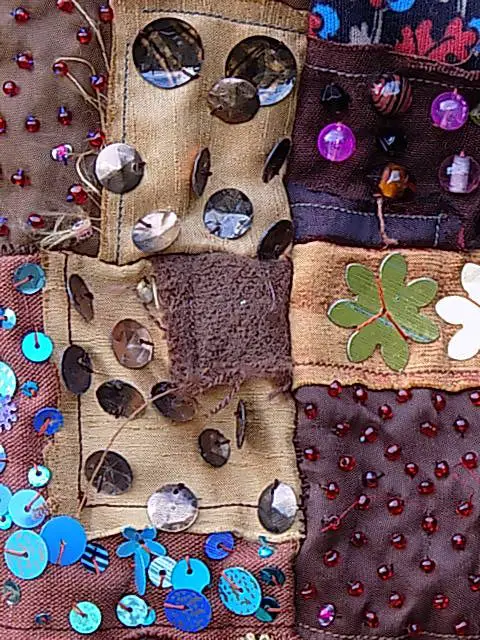
ABSTRACT PATTERN : Using printed fabrics can enhance an abstract creation, adding detailed form from simple block motifs to intricate floral designs. Recycling clothes and soft furnishings offers a treasure trove of possibilities. I particularly enjoy bold designs from the sixties and seventies which can be embellished.
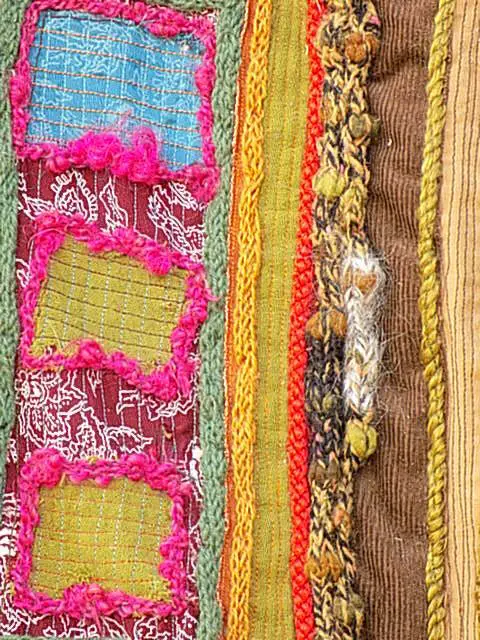
ABSTRACT AUTUMN TEXTURE : Plush velvet and suede creates a natural surface depth. Wool create warmth. Crochet and lace demonstrates the delicate structures of spider webs and skeletal frames of trees disrobed. Silk and satin is light reflective, creating a sheen enhanced by sunlight. Plastics and rubber possess the waterproof quality of leaves and berries. Hard plastics create the outer shell of nuts and berries. And pliable plastics the molding of crinkled leaves. I use recycled materials and enjoy fabrics which are naturally eroded, capturing the essence of Nature. Roughly cutting fabrics to promote natural fraying adds textural depth between layers. Using a variety of embellishments (metallic, wood, plastic, glass) creates surface depth within the textile structure.
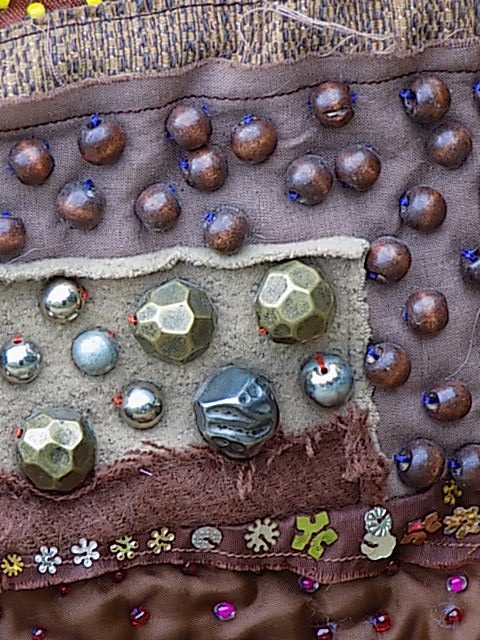
ABSTRACT AUTUMN FORM : Seed heads and delicate skeletal structures possess a beautiful sculptural quality which can be captured in applying a variety of manufactured plastic shapes with cut away patterns and dents. Tiny glass and plastic beads make for ideal seeds. Larger wooden beads remind me of the fallen debris littering woodland walks. Varying your embellishments creates a tapestry of the season, each with it’s own light reflective quality to capture the changeable dimensions of light and warmth within the season.
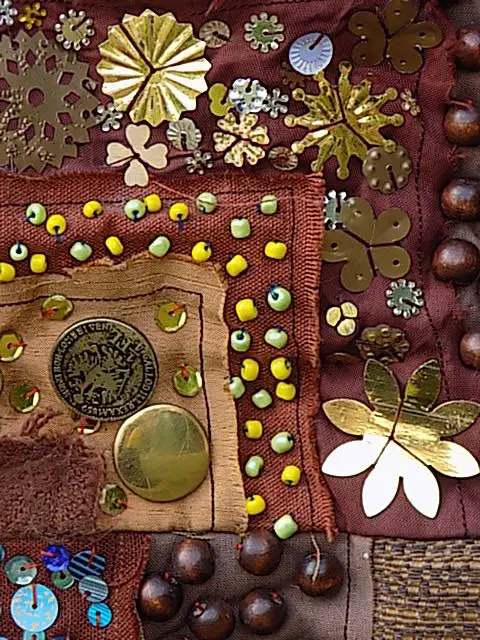
LANGUAGE AND POETRY : I use poetry to capture the essence of a subject, enhancing an abstract textile with written imagery, hand embroidered in silk thread or wool. ‘Autumn 2’ captures the end of Autumn when leaves have fallen and trees become sculptural forms: ”Skeletal frames take on the shape of old bones, brittle and cold. Naked now, fully exposed”.
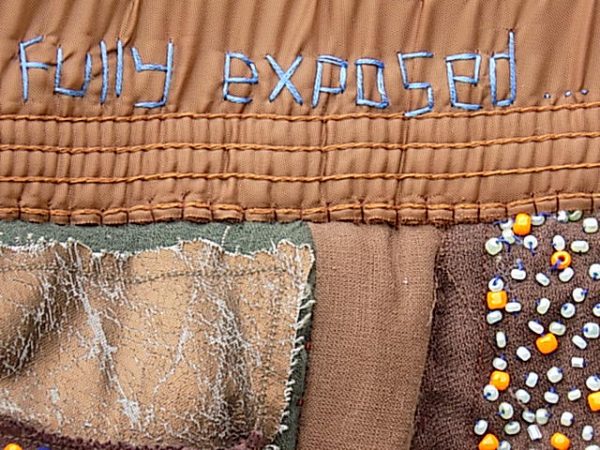
WOOL : Using wool in my Autumnal work adds additional colour, depth of warmth (as we settle back into our cosy winter knits), pattern within the structure of the knit, and texture (the hairier the better). I use jumpers and blankets as a good base to work on. I love french knitting, creating tubular structures rather like the cocoons created to house insects. The thicker the wool the greater the structure in strength, shape and size. Embellishing patchwork panels creates depth within the surface. Simply hand stitch in place.
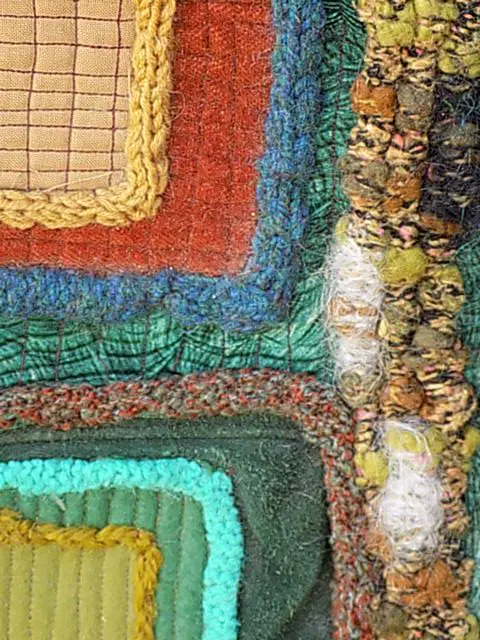
POMPOM FRINGE : Creating a fringe using wool pompoms (another joy I learned as a child) is not only effective in adding a diverse range of colour and texture but creates a weight within the structure of the textile and is freely mobile. ‘Autumn 1’ offers a carpet of fallen leaves in vivid Autumnal colour.
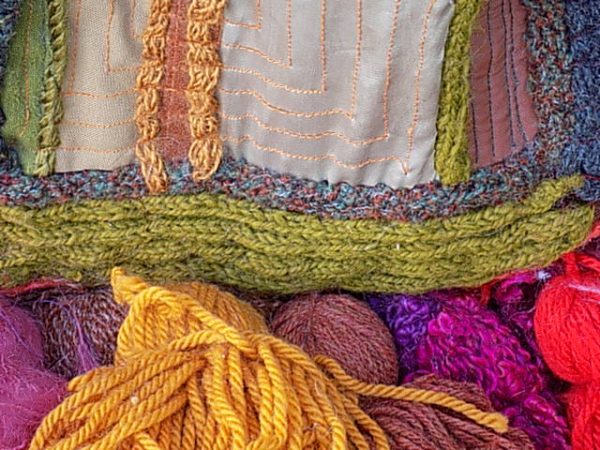
I do hope you you are inspired to enjoy all that Autumn has to offer. You will find more seasonal textiles and poetry by Christine Cunningham here and here.
Enjoy!

